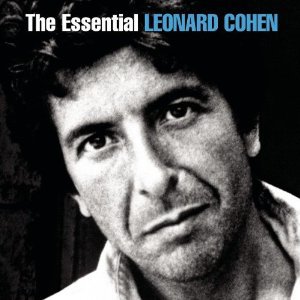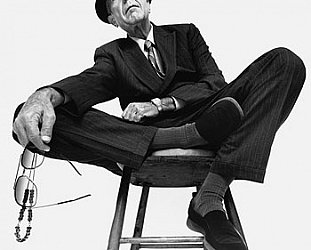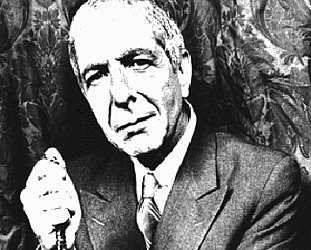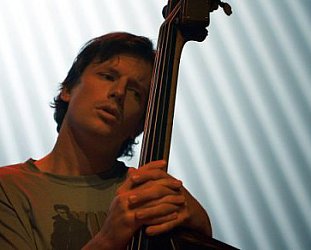Graham Reid | | 2 min read
Leonard Cohen: Alexandra Leaving

The British rock writer Nigel
Williamson, considering the career of Leonard Cohen, recently
observed, “We often describe singer-songwriters as being
'Dylanesque', a band with great harmonies you might describe as
'Beatlesque'. We even talk about someone being 'Waitsean', after Tom
Waits.
“But have you ever heard the word
'Cohenesque'? It doesn't exist, and that says it all.
“He's a unique artist and not only
has he never been copied, I don't think anybody has even contemplated
trying to do so.”
Leonard Cohen – 75 and still touring – occupies a
unique position in music: he has been included in rock culture, but
was never part of it. And although nominally a “folk musician”
early on, he wasn't part of the folk movement either.
Cohen has always been a man apart: a
writer with four acclaimed books of poetry and two novels behind him
before his debut album Songs of Leonard Cohen.
That album was released at the end of
1967. Others with debuts that year included Jimi Hendrix and the
Doors. The multi-coloured air was infused with incense, marijuana and
psychedelic drugs (the Beatles Sgt Peppers' released in June)
and Cohen's monochrome Songs arrived with spare, poetic lyrics
and a sense of quiet.
Susanne, Sisters of Mercy and So
Long Marianne made people stop and listen. They were folk – but
not folk of the protest movement of a few years previous, or the
surreal lyricism of Bob Dylan.
Cohen – Jewish, from French-speaking
Montreal – came from a more European consciousness. But most rock
listeners were unfamiliar with French singers like Jacques Brel or
the Spanish poet Federico Garcia Lorca, Cohen's formative influences.
Throughout his long career – made
more alluring by his absence when he retired to the Mt Baldy Zen
monastery in California for a five year stretch until 99 – Cohen
had outsider status, and that placed his music beyond the whims of
cultural change.
Bird on a Wire from 69 resonates
as much today as it did then, and his interpretation of The
Partisan from the same year perhaps even more so in these
troubled times.
Of his more recent songs In My
Secret Life from 01's Ten Songs (the album with co-writer
Sharon Robinson after his return to the world from Mt Baldy) reaches
across generations for its honest heart: “I do what I have to do to
get by. But I know what is wrong and I know what is right, and I'd
die for truth in my secret life . . .”
Two years ago Cohen returned to the
stage after a 15 year absence. His subsequent tours have been
critically acclaimed and those seduced by his exceptional Vector
Arena or Wellington concerts in January 09 will doubtless have the
Live in London DVD released last year.
But for anyone wanting an overview of
the original songs which made people catch their breath, Cohen's
career has been distilled onto The Essential Leonard Cohen
double disc.
Here are 31 of his best known songs:
from Suzanne and Sisters of Mercy through Famous
Blue Raincoat and Hallelujah to First We Take
Manhattan, The Future and A Thousand Kisses Deep.
An expanded version which adds seven
song on a third disc (the collection Essential Leonard Cohen 3.0)
unfortunately doesn't extend into his last album Dear Heather
of 04 (aside from one track, The Letters), but it fills in a
gaps with songs from the 70s (including Death of a Ladies' Man
produced, improbably, by Phil Spector).
But as an overview of a career which
defies easy analysis these are useful primers. And of course he
sounds like no one other than himself.
And no one sounds “Cohenesque”.







post a comment